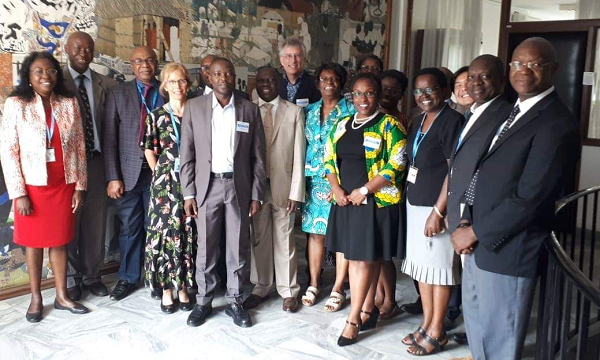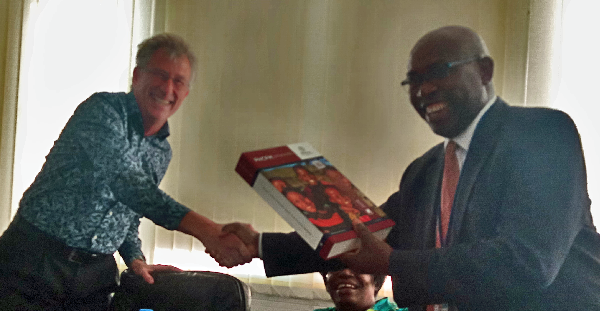WONCA Africa and WHO AFRO hold successful meeting
 Photo: Meeting participants in a group photo at the WHO AFRO offices
Photo: Meeting participants in a group photo at the WHO AFRO offices
Dr Innocent Besigye, Association of Family Physicians of Uganda writes:
A two-day consultative meeting was held at the WHO AFRO offices in Congo Brazaville on the 13-14 August 2019. This meeting came as a result of the active participation of Dr Prosper Tumussime at the WONCA Africa conference in June 2019, in Kampala, Uganda. The need for WONCA Africa and WHO AFRO to work together to strengthen health systems in African countries became apparent.
At the meeting WONCA Africa was represented by Prof Bob Mash from South Africa, Dr Innocent Besigye from Uganda and Dr Joy Mugambi from Kenya. Prof Shabir Moosa the WONCA Africa President joined the team at the concluding meeting. The main purpose of the meeting was to understand what each party is doing and to identify areas of working together for improving delivery of health services to the people of Africa.
The two-day meeting included presentations by the different WHO clusters highlighting what each cluster does. The team also made two presentations on WONCA Africa and what it does and the Primafamed Network highlighting its working relationship with WONCA Africa. Special mention of the
African Journal of Primary Health Care and Family Medicine was made and a copy was presented to Dr Propser the who was leading the team of WHO AFRO.

Photo: Prof Bob Mash handing Dr Prosper a copy of the African
Journal of Primary Health Care and Family Medicine during the meeting
The team held a separate meeting with each cluster to identify particular areas of collaboration. It was suggested that WONCA Africa through her member organisations in WHO member countries within Africa can be a key partner in;
• dissemination and implementation of WHO guidelines designed to guide health providers
• capacity building through continuous training of primary care providers
• improving quality of care through clinical governance and stewardship
• academic member organisations through the Primafemed network can influence curriculum design and implementation with the latest WHO guidelines and standards
The meeting agreed on the following:
• Member organisations to actively engage WHO Country offices in their respective countries
• Regular meetings between WONCA Africa and WHO AFRO; annual face to face meetings and quarterly virtual meetings
• WONCA Africa to participate in the District Health Services functionality assessment tool that will undergo review soon. This will bring in the primary care perspective
• Bilateral participation in each other’s activities.
As WONCA Africa focuses on strengthening its member organisations, there is need work with all relevant and strategic stakeholders that can lobby governments for favourable primary care policies. Having a string relationship with WHO AFRO is such a great opportunity that we can leverage on to promote WONCA and Family Medicine on the African continent.